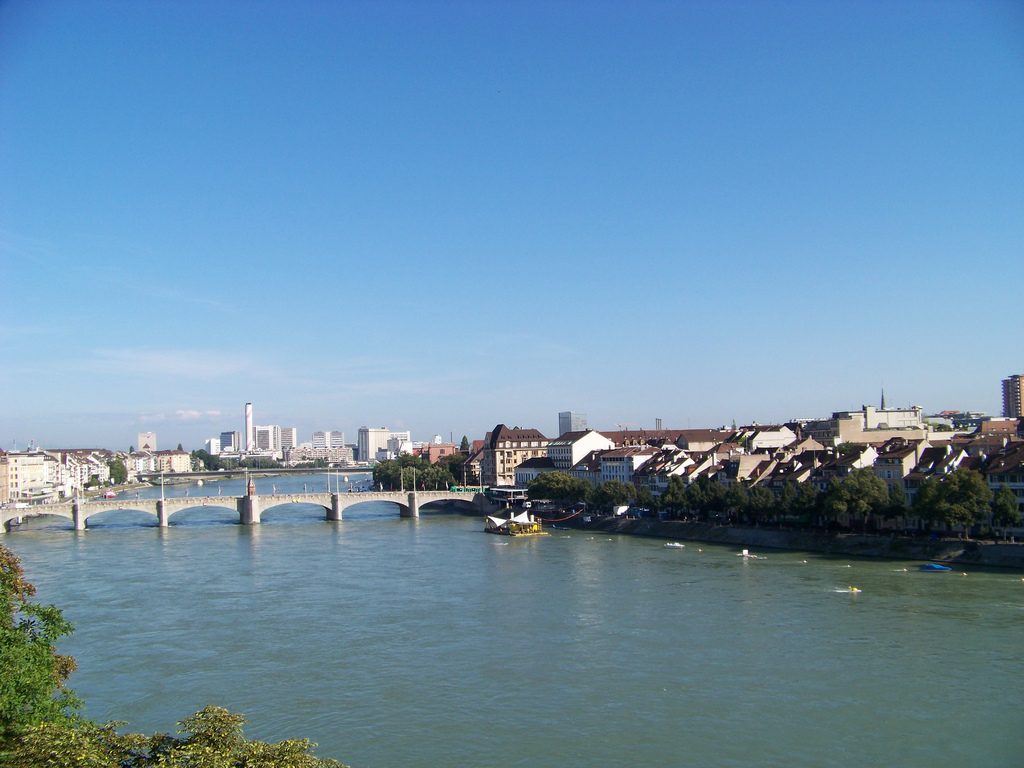Low risk – geothermal energy sees revival around Basel, Switzerland
Geothermal energy is seeing strong interest in the three-country region of Basel/ Switzerland, Baden/ Germany and Alsace/ France, with several geothermal heating (and power) projects being kicked off.
Reported today from Switzerland, it seems that geothermal energy is seeing a revival around the city of Basel in Switzerland. Basel has been known for its failed geothermal project, when drilling for a planned geothermal project was connected to an earthquake.
Now it seems though, that risks are not seen as high anymore. In Riehen, a neighbouring community to Basel, an existing plant will be expanded, the nearby French region of Alsace will become a pilot region and Südbaden a German region will follow suit with a geothermal project.
Many Baselers still remember vividly. First there was a dull thud, then the furniture shook: On December 8, 2006, the drilling of the Deep Heat Mining geothermal project in Kleinhüningen led to a clearly noticeable 3.4 magnitude earthquake. It was followed by further quakes and finally the end of the project, in which water had been pressed with high pressure to a depth of over 5000 meters to recover geothermal heat.
While in the city of Basel, geothermal energy is likely to be branded as risky for decades, things look different in the neighbouring municipality of Riehen. Here, a geothermal plant, which has been in existence since 1994 and supplies 7700 inhabitants with heat, is to be expanded by a new borehole. This could heat another 4,000 inhabitants with geothermal energy. The search for the appropriate rock layer will go to a depth of 2,000 meters. At the end of the year, a feasibility study was completed.
Matthias Meier, Managing Director of Wärmeverbund Riehen, says: “Things are going according to plan. We are in the process of carefully evaluating the results of the study. “Now it’s time to clarify the technical and financial requirements. “We submitted an application to the Swiss Federal Office of Energy (SFOE) for taking over drilling and measuring costs of 60 percent.”
This is possible within the framework of the CO2 Act. Whether the application is granted, the SFOE will not comment on the basis of the current procedure. In Riehen, underground measurements are planned as the next step, which should also provide information about the amount of the costs. A first test drilling will take place at the earliest in 2021. The plant could go into operation in 2025.
On the earthquake risk Meier says: “This can never be completely excluded, but authorities and scientists classify it as low.” In addition, there is an essential difference to Basel: “We do not work with high water pressure, but tap the layers with warm water only. ”
The group informed the public about the planned heating system just a year ago. “So far we have only received positive reactions. The great advantage is our good basis of trust, because we have been using the geothermal energy for 25 years without any problems. “Another argument in favour of geothermal energy is climate change. Objections that are possible in a first step at community level, there was not so far. Whether this can be done later on the level of the canton, Meier could not say.
Incredible potential
There was also an incident in Staufen, southern Baden in Germany, 50 kilometers north of Basel. In 2007, groundwater was brought into contact with a gypsum keeper layer, which thus became gypsum and expanded due to probing boreholes for borehole heat exchangers that were up to 140 meters deep. The result was cracks in 268 houses. The image-shame for the geothermal heat was enormous.
Slowly, however, she is seen positively again. The Freiburg government (in Germany) president Bärbel Schäfer said at her annual press conference: “Deep geothermal energy has incredible potential. The events in Basel are 100 years behind science and research. »
Jörg-Detlef Eckhardt, head of the State Office for Geology, Raw Materials and Mining, added: “Today we can measure a quake of 1.2 in the Palatinate in Freiburg.” This is 200 kilometers away. Eckhardt wanted to say that you could stop the pressing of water at the slightest sign of a quake. “In the Rhine Valley, it would be worthwhile to haul up the heat.” The authorities have just given the green light to look for geothermal energy near Offenburg.
Schäfer referred to Alsace: “The French are showing it to us.” Two plants are already in operation there, and two more in the Strasbourg area began drilling in 2017. The Vendenheim plant will supply electricity for 7,000 and heat for 24,000 households , The potential for further plants in northern Alsace exists.
Riehen draws positive balance
For the SFOE, Riehen is the Swiss positive example of the direct use of hot water in the energy system of a municipality. In order for it to continue working, the reservoir should not be exhausted. The SFOE does not see any signs of this: “On the contrary, the temperatures are rising very slowly and also the water pressure shows no signs of exhaustion.” How far the water extends, is though unknown.
Meier is optimistic: “At the second hole, we assume that we have not yet used all the hot water. The new tests will help us to better understand the underground. »
Source: Baseler Zeitung


















